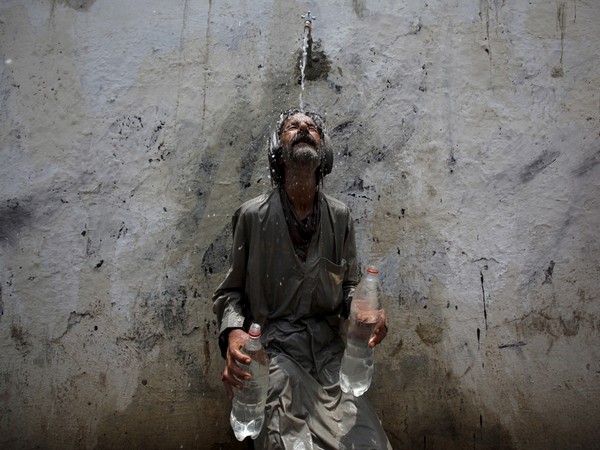Rising heat stress due to climate change poses grave health risk to TN salt pan workers: Study

- Country:
- India
Rising heat stress as global temperatures continue to soar due to climate change, poses a grave occupational health risk to the salt pan workers in Tamil Nadu, a new study has found.
The study was conducted by a team led by Dr Vidhya Venugopal of Sri Ramchandra Institute of Higher Education and Research, who is also a co-Investigator of the UK NIHR Funded Global Health Research Centre that is focussing on the intersection of non-communicable diseases and environmental change.
The research conducted among the salt pan workers in Tamil Nadu, reveals the urgent need for adaptation strategies and improved healthcare access to protect vulnerable individuals, officials said.
Between 2017 and 2020, 352 workers were studied in seven salt pans in Tamil Nadu. The workload for different job roles and classified heat stress levels were evaluated. Key indicators such as pre-and post-shift heart rates, core body temperatures, urine characteristics, sweat rates, and kidney function parameters were measured.
''The study found that every participant had either a heavy or moderate workload, and an alarmingly close to 90 per cent of workers were found to be working above the recommended limits of heat exposure. International regulations advise implementing regular break periods under such circumstances, but none of the salt pans examined had such breaks in place,'' Venugopal said.
The wet-bulb globe temperature (WBGT), a composite measure of environmental factors affecting human thermal comfort, consistently surpassed safe levels in salt pans, particularly during summer months.
The workers reported symptoms of heat strain, dehydration, and urinary tract infection symptoms, likely due to excessive sweating, lack of toilet access and limited water consumption during their shifts.
''Of particular concern is the impact of heat stress on kidney health. The study revealed a prevalence of low estimated glomerular filtration rate (eGFR), a marker of kidney function, in 7 per cent of the workers. Heat stress has been linked to various kidney-related issues, including acute kidney injury, kidney stones, chronic kidney disease, and urinary tract infections,” she said.
Venugopal stressed that urgent action is needed to implement adaptation strategies and improve healthcare, sanitation access and welfare facilities to protect vulnerable individuals.
''Failure to address this issue will result in increased heat-related illnesses, particularly chronic kidney diseases, worsened by pre-existing medical conditions, and potentially devastating health consequences for workers around the world,” said Venugopal.
The study underscores the fact that these workers, experience prolonged exposure to high temperatures without sufficient access to adaptation strategies such as shade, rehydration, and rest breaks.
Furthermore, many are hesitant to report symptoms of heat stress due to fear of job loss or retaliation. The risk is further magnified for undocumented workers who lack access to healthcare.
The researchers have recommended that employers must ensure access to shade, water, and rest breaks, as well as provide training on recognising and reporting heat stress symptoms.
Healthcare workers must be trained to recognise the HRI symptoms and healthcare providers should be aware of the increased risk of heat-related kidney injury and educate workers on the importance of staying hydrated and avoiding prolonged exposure to high temperatures.
''As temperatures continue to rise, the well-being and safety of workers in a warming world must be prioritised. Adapting to the risks posed by heat stress demands collaborative efforts from employers, policymakers, and public health officials.
''Only through concerted action can we safeguard the health and livelihoods of those on the frontlines of heat-exposed labour,'' said Vivekanand Jha, Executive Director, The George Institute for Global Health India and co-lead of the UK NIHR Global Health Research Centre for Non-Communicable Diseases and Environmental Change.
(This story has not been edited by Devdiscourse staff and is auto-generated from a syndicated feed.)
ALSO READ
Tamil Thalaivas Triumph Over UP Yoddhas with Commanding Performance
Cyclonic Storm Alert Leads to School Closures in Tamil Nadu
President Droupadi Murmu's Tamil Nadu Tour: Engaging Tribes and Troops
President Murmu's Tamil Nadu Tour: Bridging Communities
Monsoon Fury: Tamil Nadu's Delta Faces Torrential Deluge










